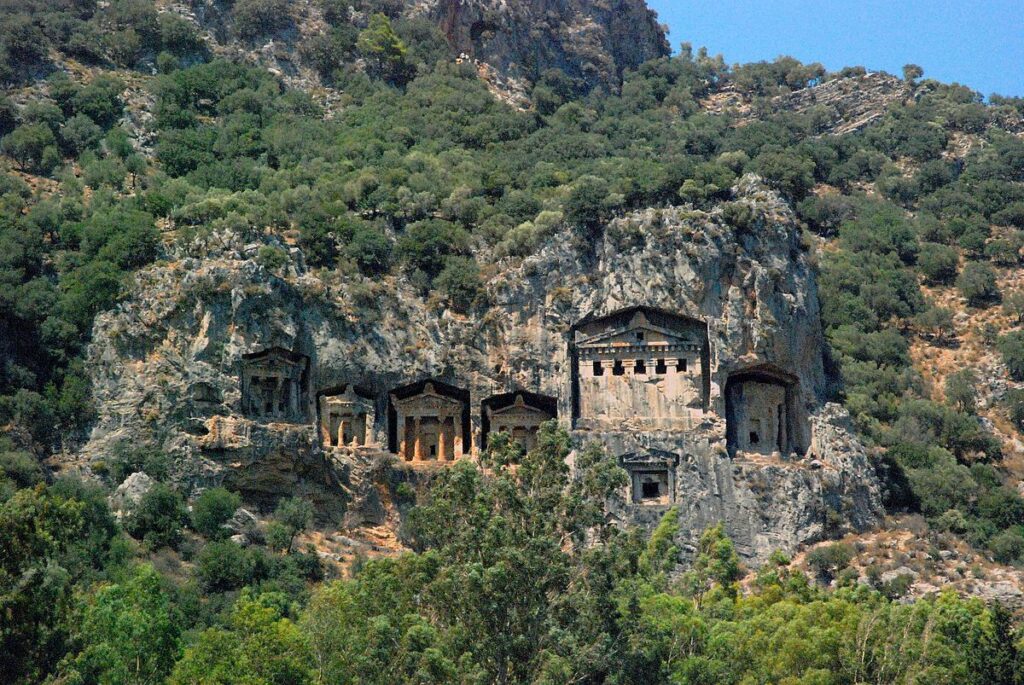Lycia is a city in the present-day southwestern part of Turkey. At the time that it was founded, the area where Lycia is located was called Anatolia. The alternative name for Lycia, which appears in some Greek myths, is “Lukka Lands.” The people who lived in Lycia in ancient times were linked to the Sea Peoples, who were a band of pirates and raiders that pillaged coastal towns throughout the Mediterranean. In ancient times, Lycia was a village that had about 100 settlements. Due to its location in Turkey, Lycia was an important city in both ancient Greece and Anatolia.
Where Mythology and History Meet
Historians aren’t sure when exactly Lycia was founded, but artifacts discovered by archaeologists suggest that it is at least 2,000 years old. Because Lycia was considered an important city in ancient Greece, it appears in many myths. It is also known as the birthplace of Herodotus, who was a Greek writer credited with inventing the subject of history. Lycia is also well-known for a site within its boundaries called Letoon. Letoon was a place of worship made for the goddess Leto and her two sons. Letoon is still intact today, and it is preserved as a World Heritage site.

Foundation of Lycia
Although the exact date of Lycia’s birth remains unknown, it is clear that the founder and first ruler of Lycia was Sarpedon. Sarpedon was the son of Europa, who was a Greek goddess of the moon. Europa was a prominent figure in Greek mythology, and her name is the basis for the continent of Europe. Europa had many children, including a son named Minos. Minos and Sarpedon initially fought for control of Crete, which is the place they were born and raised. Sarpedon lost the fight and became the ruler of Lycia, while Minos became the ruler of Crete.
Sarpedon was one of two rulers of Lycia during the Trojan War. The other leader was named Glaucus. Because they led their city in battle, they are considered to be the two top leaders during the Trojan War. Lycia was also involved in the Persian Wars. Lycia was an independent city before the war, but it fell under Persian control in 546 BCE. After the city was taken over, it was ruled by a series of dynastic rulers. The first post-war ruler of Lycia was Pericles. However, shortly after Pericles took power the city fell under the control of Alexander the Great, who expanded his empire by taking over key towns and cities between 334 and 323 BCE. After Alexander the Great died in 324 BCE, control of Lycia was given to Ptolemy.
Ptolemaic dynasty
Ptolemy was a loyal king of Alexander the Great, and he was chosen as a successor to Alexander the Great’s empire. Ptolemy also went on to create his own dynasty, which was called the Ptolemaic dynasty. The Persians were eventually kicked out of Lycia, but that did not last long. After the Persians lost control of Lycia, it was independent for some time. However, in a fight with the neighboring city of Athens, which was a very powerful city, Lycia was once again captured by the Persians.
Link/cite this page
If you use any of the content on this page in your own work, please use the code below to cite this page as the source of the content.
Link will appear as Lycia – Ancient Greek Places: https://greekgodsandgoddesses.net - Greek Gods & Goddesses, October 21, 2019